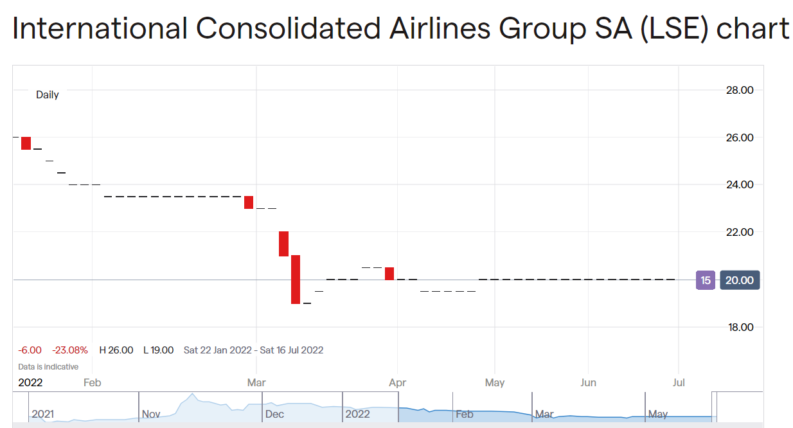Key points:
- All airlines have staffing problems this summer
- That's leading to industrial action at all of them to varying degrees
- If IAG has solved the Heathrow problems does this put them ahead of EZJ, WIZZ?
- key point
There's a possibility that IAG (LON: IAG) shares will beat Easyjet (LON: EZJ) and Wizz Air (LON: WIZZ) shares in this short term as the owner of BA has been able to avert strikes at Heathrow. The problem is, of course, that BA has been able to do this by considerably increasing pay. So, the calculation becomes whether the money not lost through disruption to flight schedules is greater than the increased costs of employing the workforce.
What makes the impact of this different among the airlines. IAG, Easyjet and Wizz Air, is that they are based at different airports. So, while they all face much the same problems on the grander, macro, scale they do have different micro or small scale influences.
The airlines do, of course, face considerable problems this summer. One of the worst is that staff left during lockdown – which was always going to happen – and now need to be rehired. But there's a problem with doing that with any speed which is the employment history required for anyone to gain an airside pass. It's necessary to have references from all recent employers over a 5 year period — which just takes time to gather, especially with the sort of short term job hopping that many have been recently doing. This is the underlying cause of the staff shortages and thus the flight cancellations.

Also read: How To Buy British Airways Shares.
There's also that whole background of the effects of lockdown on travel itself. Are we all now inured to the idea that we've got to holiday at home? Or are we all so gasping for a beach that we're going to storm the airports to get away? So far it looks like traffic is returning so that's a good underlying to the basic airline model. On the other hand it's not actually traffic itself which determines airline profits. Of course it's an influence, but not the determinant – that's passenger load. It costs – largely – about the same to run a flight empty or full. So profits come from running full flights, making passenger load the determining factor for that bottom line.
That means that it's matching predicted demand – how many flights will be run – to actual demand that matters. Passenger loads are increasing, again good for the sector as a whole.
Which then hits that little buffer of the staff shortages. Given that airlines cannot just haul people in off the street and employ them those who already have jobs and passes have a certain industrial power here. And given that airline profits tend to get made in this imminent summer season – mid-July to early-Sept is when most of that annual profit is made – right now is when those industrial muscles are being flexed.
There are a variety of strikes being called all over Europe and affecting the different airlines in different ways. IAG here has been able to sidestep in a way that the others haven't. Whether that will be beneficial to IAG shares depends upon whether the price paid in higher wages is greater or lesser than the revenues saved by not interrupting this summer flight season. Time will tell.




